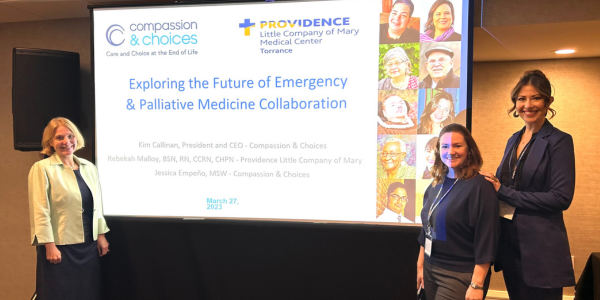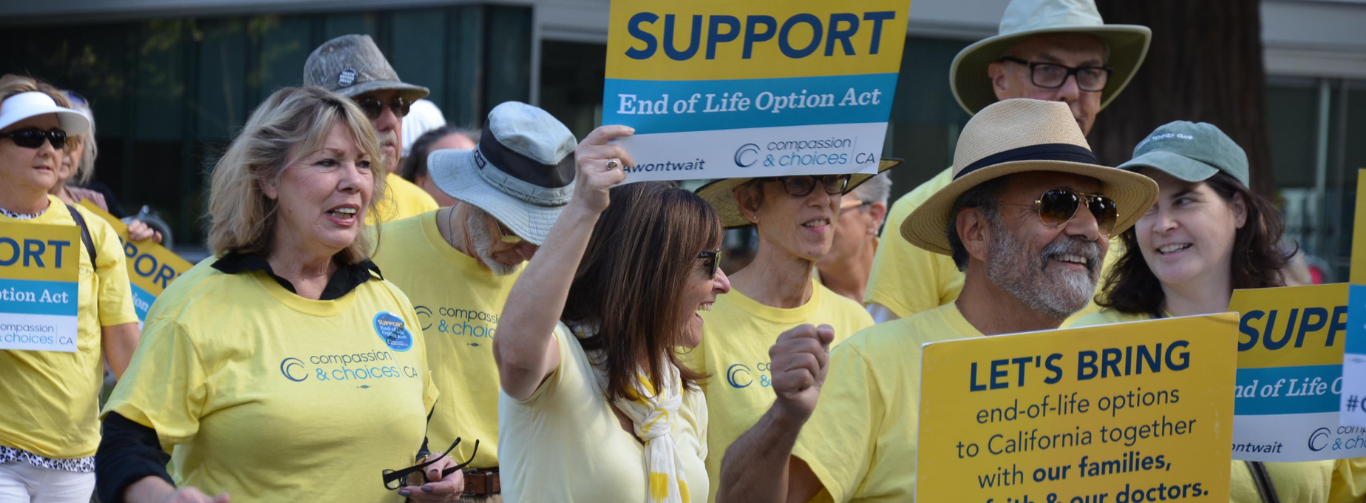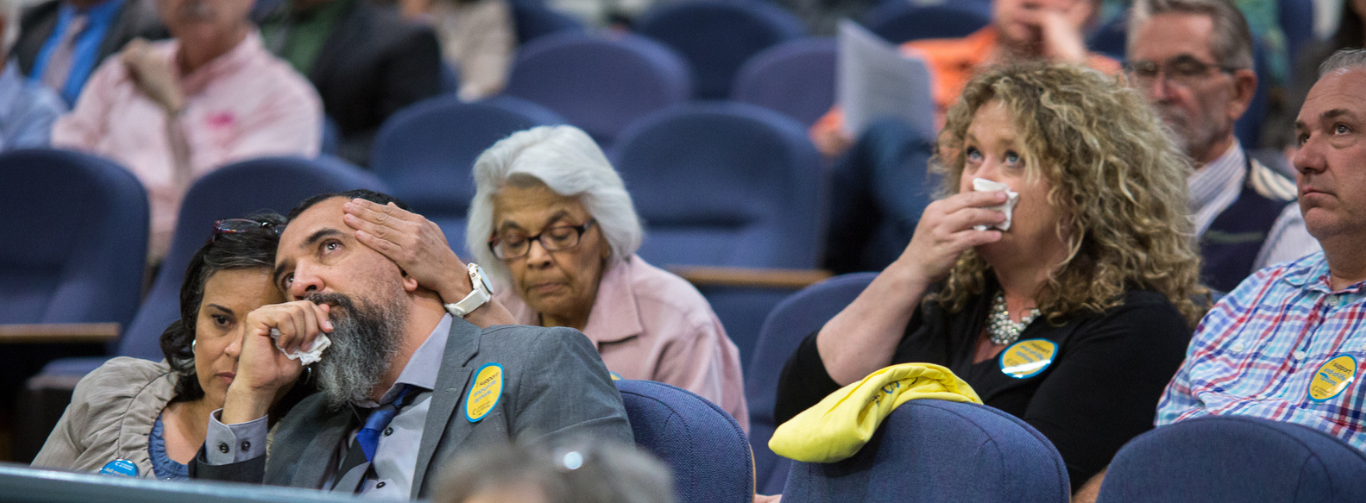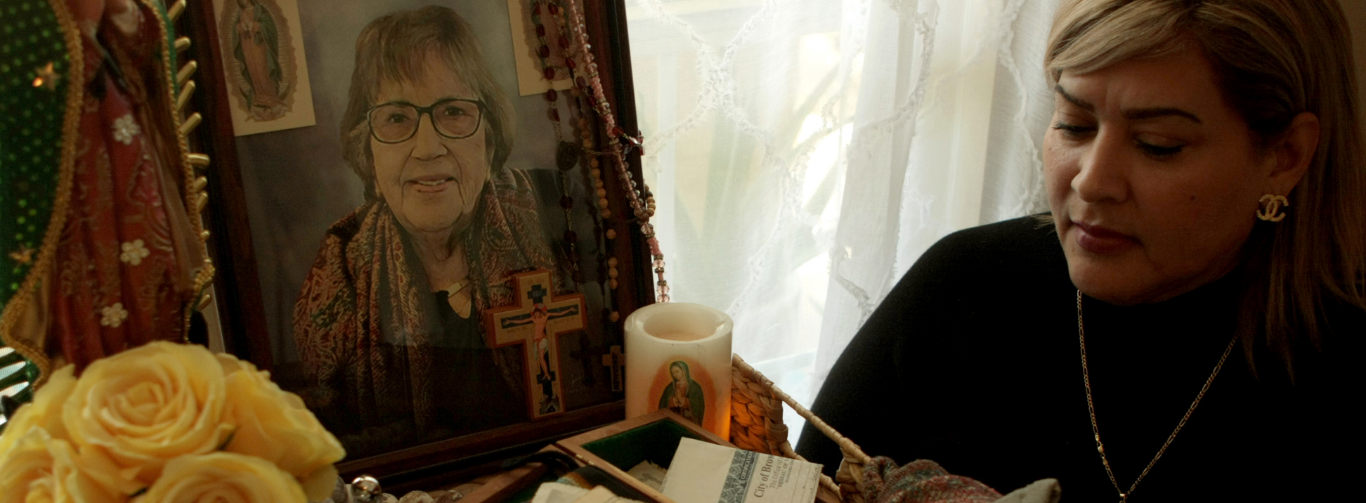INFORM
EMPOWER
ADVOCATE
DEFEND
A society that affirms life and accepts the inevitability of death, embraces expanded options for compassionate dying and empowers everyone to choose end-of-life care that reflects their values, priorities and beliefs.
Compassion & Choices improves care, expands options and empowers everyone to chart their end-of-life journey.
- Compassionate in our commitment to dying patients having access to needed care at the end of life and being free of unwanted treatment, suffering, or interference.
- Respectful of the autonomy of individuals to decide what end-of-life options are best for them and their loved ones.
- Courageous in our willingness to confront the toughest end-of-life health challenges, disrupt the broken status quo and protect an individual’s right to self-determination.
- Credible in all our education, advocacy and partnerships — our efforts are grounded in objective research and demonstrable facts.
- Resilient in our capacity to respond to opportunities for and threats to the movement, so that we can achieve our vision as quickly as possible.
Long-Term Objectives
Improve Care Through Systemic and Policy Change

Develop patient-directed end-of-life healthcare demonstration projects, provide CME- and CEU-bearing training, and advance federal legislative or regulatory reforms, to:
- Address care for those living with dementia by normalizing advance-care planning so people can pre-claim their right to access exactly the kind of care they want – and access the exact care they want – nothing more and nothing less.
- Address inequities in end-of-life healthcare including increased access and improved quality for priority populations in partnership and collaboration with the impacted communities.
- Transform the ER experience for dying patients by broadly implementing an existing model of care that integrates palliative medicine into emergency settings, which is proven to improve outcomes, increase satisfaction and reduce expenses for patients and providers alike.
Expand End-of-Life Care Options

Goal: By 2028, 50% of all Americans will live where medical aid in dying is authorized and accessible.To achieve it, we will:
- Authorize new states to provide all end-of-life care options, including medical aid in dying, for qualified terminally ill adults with access in each region of the country.
- Create a path toward authorization in large, politically challenging states with increased support from Republicans and Libertarians.
- Integrate the option of medical aid in dying into standard practice for patient-directed end-of-life care by expanding outreach, education and technical support for clinicians, medical societies, and residency training programs.
- Repeal the Assisted Suicide Funding Restriction Act of 1997 to make the practice more accessible and affordable.
Defend and Protect End-of-Life Care Options

Defend and protect the full range of patient-directed, end-of-life healthcare:
- Block efforts to weaken or overturn medical aid in dying laws or undermine a patient’s rights to accurate information, timely care with access to a full range of options.
- Counter healthcare restrictions based on ethical and/or religious directives that impede patient choice and reduce end-of-life healthcare options such as those imposed by Catholic hospitals and hospices.
Empower Everyone to Chart their Own End-of-Life Journey

Ensure that everyone is informed, empowered, and engaged so they can direct, access, and receive end-of-life healthcare that is consistent with their values and priorities. To activate that autonomy, we will:
- Create a user-friendly roadmap to empowerment in collaboration with key stakeholders across a wide range of communities and inspire at least 100,000 roadmap “graduates.”
- Train 2,500 certified end-of-life care roadmap guides by 2033 to advocate for empowerment in their communities.
- Broaden our network of activists and supporters to foster a diverse, equitable, and inclusive movement with a focus on racial, ethnic, age, gender identity, and faith diversity and those living with disabilities.


